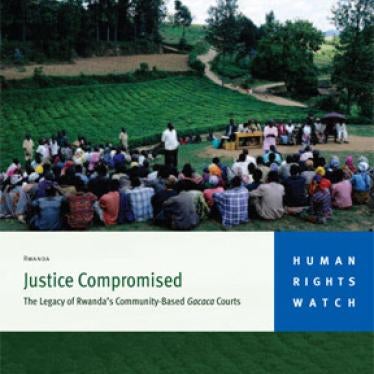(New York) – The Chinese government should free the prominent human rights lawyer Gao Zhisheng and refrain from imposing any further restrictions on his movement, Human Rights Watch said today. Gao has repeatedly been subjected to enforced disappearance, arbitrary detention, or imprisonment on baseless charges.
Gao has been imprisoned since late 2011 in Shaya Prison in Xinjiang Uyghur Autonomous Region on charges of “inciting subversion of state power,” a state security charge often used against peaceful government critics. Prison authorities have said they will release him on August 7, 2014.
“After Gao Zhisheng’s years of torture and arbitrary detention, anything short of allowing him genuine freedom will surely be widely condemned,” said Sophie Richardson, China director. “Chinese authorities have a chance in their treatment of Gao to make a break from the previous administration’s thuggish tactics.”
Earlier in July, prison authorities told Gao’s brother that Gao will be released on August 7. But they also told Gao’s brother not to come to the prison, family members and press reports said. The prison authorities told Gao’s brother they had yet to “communicate with Beijing” – presumably about the release – and that he should await further notice. Gao’s family has not received any further information about his release.
Gao, 50, was named “one of China's top 10 lawyers” by state-run media in 2001. But his defense of individuals and cases considered controversial by the government, including Falun Gong practitioners, underground Christians, and villagers and small business owners in property disputes against local officials – eventually angered local and national authorities.
In August 2006, Gao was detained, stripped of his lawyer’s license and charged with “inciting subversion of state power.” On December 22, 2006, Gao was sentenced to three years in prison and deprived of his political rights for one year, though the sentence was suspended and Gao was given five years of probation. During that time, Gao was forcibly disappeared for more than 50 days, between September and November 2007, after he was last seen in the presence of Beijing Public Security officers at his home. He later described being severely tortured during this period.
In January 2009, Gao’s wife, Geng He, and their two children fled to the US. In February 2009, Gao was detained again by Chinese security officers and held incommunicado for more than a year. In response to a journalist’s query in January 2010 about Gao’s whereabouts, a Foreign Ministry spokesperson said, “He is where he should be.”
Gao briefly reappeared in late March 2010. In an interview with the Associated Press in April 2010, Gao revealed that he had been repeatedly tortured during this latest 14-month disappearance.
Gao was detained again on April 20, 2010, and his whereabouts were again unknown until December 16, 2011, a few days before the end of his five-year probation period. Xinhua, China’s state news agency, reported that day that a Beijing court had determined that Gao had violated the rules of his probation and would therefore have to serve out the three-year sentence initially delivered in December 2006. This announcement drew widespread international condemnation, including from the United Nations Office of the High Commissioner for Human Rights (OHCHR).
Gao’s family did not receive notification about where Gao was to serve his sentence until January 1, 2012. His family has only been allowed two visits since then, even though officials generally allow monthly visits to prisoners. During those two brief visits, Gao was not allowed to discuss his conditions in prison.
In recent years, the Chinese government has released activists from prison only to effectively incarcerate them again under house arrest. There are concerns that Gao will face similar treatment.
In September 2010, the prominent rights defender Chen Guangcheng was released from more than four years in prison, but was then taken to his home and subjected to unlawful house arrest by Shandong authorities until his escape in April 2012.
After being imprisoned for 15 years, the Inner Mongolian dissident Hada has been held under house arrest since his “release” from prison in December 2010.
Gao should be released and not subjected to any further restrictions. There should be no obstacles to meeting his family and friends or to leaving the country if he chooses.
“The Chinese government has gone to extraordinary lengths to silence one of its most vocal critics, but paradoxically this attracted more attention to China’s poor rights records,” Richardson said. “Gao should never have been in jail in the first place, and the only way to begin mitigating the damage done is to free Gao once and for all.”






